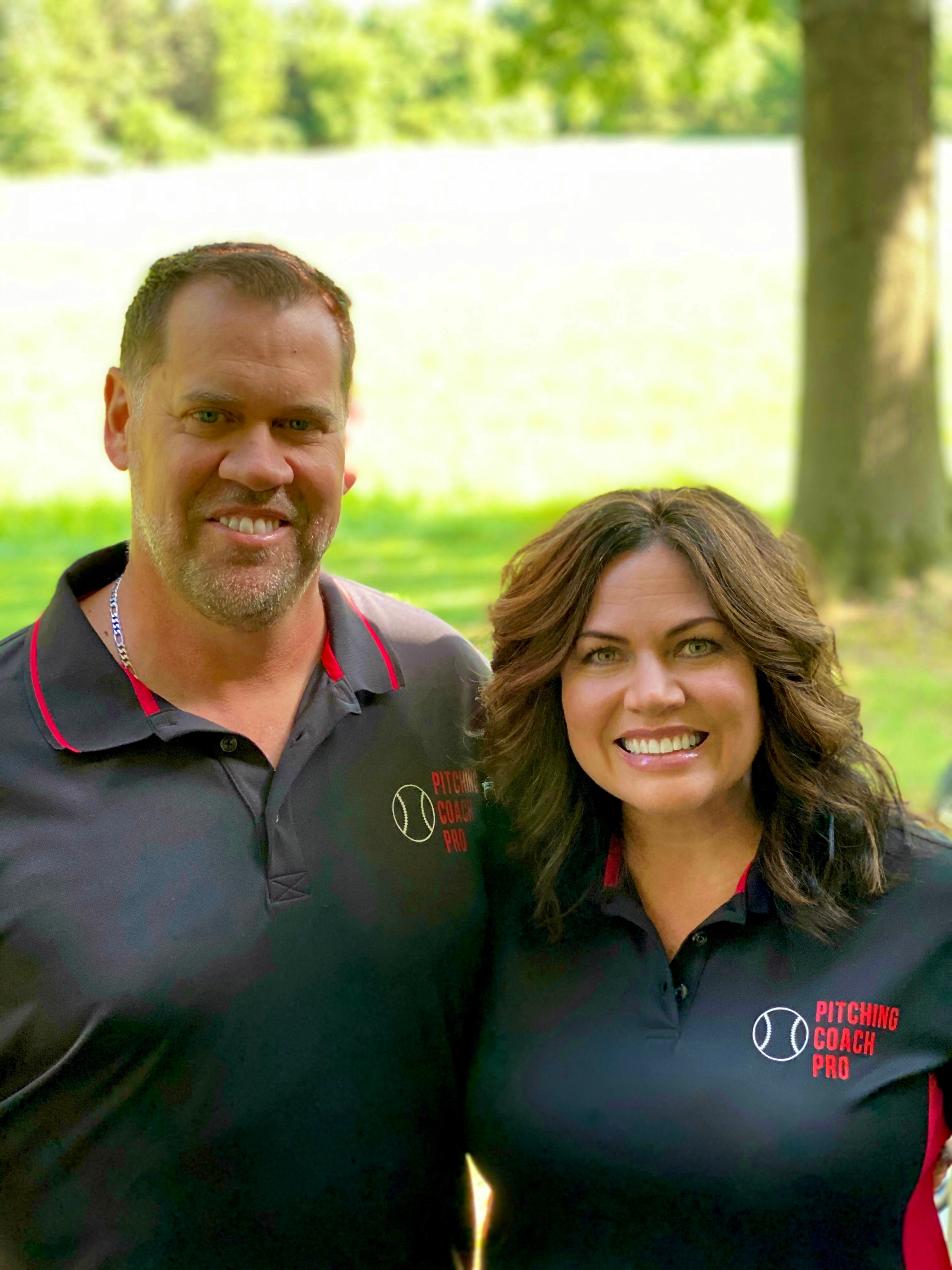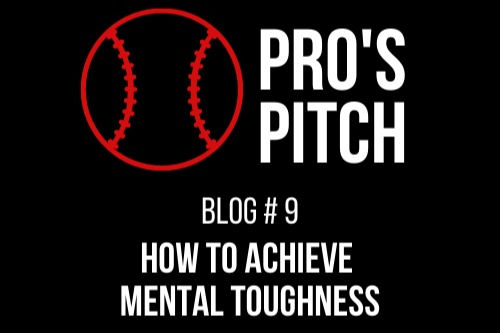How to Achieve Mental Toughness
- Pitching Coach Pro

- Jul 28, 2020
- 5 min read

Previously, I discussed how important it is to have confidence and how much of a factor it plays when it comes to performance on the mound. But when you break things down on a more complex level, confidence is only one component of many when it comes to displaying a strong mental approach when pitching. When you delve into all combining factors of what it takes to become a successful athlete, mental toughness is as equally important as the physical because without a strong mindset, you will be unable to reach your full potential. Today I am going to outline Pitching Coach PRO’s belief system on the mental approach to become a successful pitcher because it helped me tremendously with my career.
Pitching Coach PRO believes that six principles must be practiced to achieve mental toughness including:
Motivation
Visualization
Focus
Confidence
Composure
Aggressiveness
Motivation
While diligently working to make it to the higher levels during my professional pitching career, I was told several times along the way that I would never make it to the big leagues. I had four injuries that needed surgery which added more roadblocks along the way. But my true ambition was to pitch in the big leagues. Pitching at the highest level was my motivation, my burning desire. I was willing to work as hard as I needed to achieve my goal.
There are six components to a strong mental approach that I am going to outline today, and the first one that I have briefed on here is motivation. You have to rely on that strong desire you have within yourself to motivate you. Desire is what keeps you going and wanting to continually improve. Without that inner voice driving you, one may find that they are just going through the motions. Motivation is what kept me going throughout my challenges during my lengthy pitching career, throughout the ups, as well as the downs. What is your motivation? Is it yours or someone else’s? Find your motivation from deep within and let it be the driving force for you to push forward.
Visualization
Visualization is the second component that comes into play. It is also referred to as mental imagery, rehearsal, or even behavior rehearsal. It is a necessary training tool that will improve the quality of athletic movement, increase the power of concentration, assist with building confidence, and reduce the pressures of competition. Visualization should not be limited by just your eyes. In order for it to work best, you must be able to see it, feel it, smell it, and hear it.
Visualize your outings and everything about them. Notice how your body reacts when you are on the mound, for example, your heart pounding, sweat on your forehead, perhaps your breathing changes. Feel the ball in your hand and how it feels to stand on the mound. Visualize you are in the game, facing each and every hitter in the upcoming line up and focus on each pitch, your fastball going down and away for a called strike, your change up…
What you will do if there is an error or if there’s a hit? How will you react? Here are a few key points to help you with your visualization rehearsals:
Visualize your pitch before you throw it.
Know where the pitch is going to go and hit your target.
Seeing is believing! -- See yourself pitching in a big game and everything that comes with it.
Make it positive, see yourself executing cleanly.
Focus
In order for your visualization rehearsals to be effective, you have to have focus, which is the third component of having a strong mental and visual approach to pitching. Visualization allows us to increase our level of concentration, to train our brain at a deeper level and to condition it for a successful outcome. To begin doing this, we have to learn to eliminate distractions so we can obtain a deeper level of concentration. We can carry out these visual and focus techniques at practice, as well as in private, to master these skills that will allow us to become a better pitcher.
Some key points to focus on are to:
Totally block out the hitter, umpire, noise and clear your mind of any negative thoughts.
Train your brain like you do your body and your muscles so you have better focus and clarity on the mound. Keep it strong.
Focus on what you can control. You can't control the umpire’s missed calls or a fielder’s error.
Aim small, miss small.
Get well-rested sleep.
Remember, one pitch at a time!
Confidence
The fourth component is one we have discussed in a much broader sense in my previous blog on building confidence. It is the most important factor in obtaining mental toughness. Your level of preparation will dictate the level of confidence you can achieve. Along with that key point, remember to know your strengths and limitations as a pitcher, that your demeanor speaks loudly as far as your confidence level, learn not to overthink, and to remain poised.These will help to build trust in yourself, therefore building and displaying confidence.
To show confidence:
Have conviction in every pitch.
Don't out think the hitter, this goes back to staying within your strengths!
Have a saying in your mind or written on your hat that pulls you back to being locked in.
Whatever you say out loud you will have a better chance of doing.
Composure
Difficulty managing emotions during games will negatively affect your pitching performance. Composure becomes necessary and is a learned skill and a key characteristic for all mentally tough pitchers. Having self-control, and remaining cool, calm, and collected is the fifth component of mental toughness.
When anger sets in you lose fine motor skills, stress hormones increase, and decision making skills suffer. Learning to control emotions is key, especially on days when you don’t have your best outings.
Try these tips to maintain your composure on the mound:
Control your anger or frustration, step off rubber for a moment and recollect.
Control your breathing, breathe slowly and deeply to calm yourself.
Have a short term memory when it comes to pitches. Let go of the last pitch and refocus on the current pitch.
Repeat a phrase like “let it go” or “shake it off” and reset before you throw your next pitch.
Aggressiveness
The last component to showing mental toughness is to have a competitive mindset, be bold and take control of the game. Dominate. Be aggressive in a controlled way by attacking the strike zone and hitting your mark. First pitch strikes is your goal and will put you at a huge advantage as far as controlling each and every hitter as well as the game.
To demonstrate aggressiveness on the mound:
Don’t be predictable.
Always stick with your game plan and let the hitters tell you if you need to make changes.
Trust your stuff.
Pitch inside with control and move the hitter off the plate.
Summary
In order to develop and achieve mental toughness, you will have to practice the above components daily. Find your motivation, let that move you to do more. Use visualization techniques at every practice, before every game, by yourself, and around others. Focus at deeper levels and master tuning out anything that could interrupt your concentration. Prepare fully! Preparation will add to your confidence level. Keep your composure at all times, don’t show frustration or anger. It will get the best of you every time. Focus on being aggressive on the mound, attacking the strike zone. Below, Pitching Coach PRO included a poster summarizing the six strategies used to achieve mental toughness.
Always practice and apply these techniques. If you do, you will cultivate the mental toughness you need to be ready to compete at your highest potential. There is no stopping a strong and determined mindset! After all, I speak from experience.





Comments